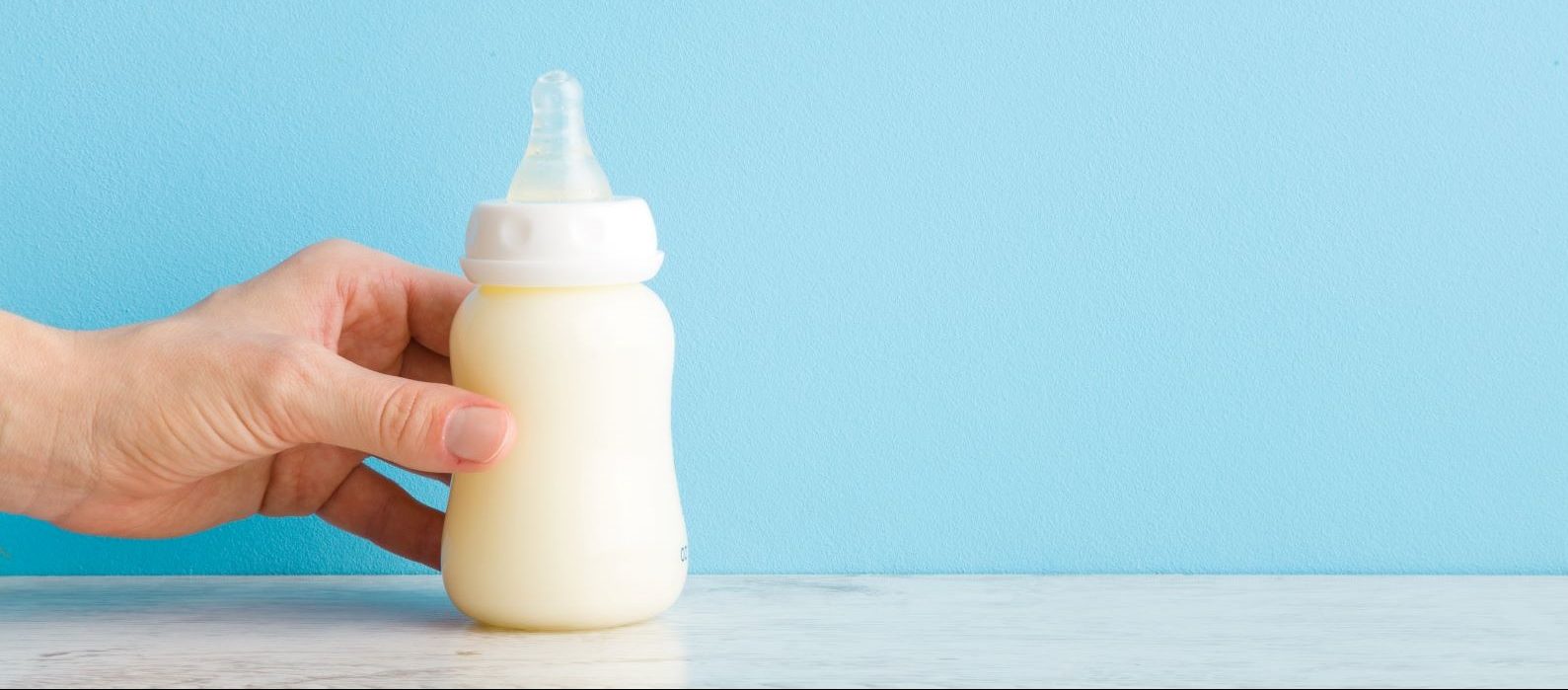A combination of COVID-19 supply chain issues and manufacturer recalls has created a baby formula shortage that is causing high anxiety.
For millions of parents across the nation, hearing about a 40 percent shortage and looking at empty shelves in store after store is scary and depressing. Finding baby formula right now may seem like mission impossible.
“Appropriate nutrition is really important early in life, as babies’ organs and tissues are still rapidly developing even after they are born,” said Erin Bane, certified nurse midwife at Windham and Backus hospitals. “Breast-feeding is not for everyone, so a formula shortage should be considered a food crisis.”
Lucia Benzoni, DO, FAAP, a pediatrician at Charlotte Hungerford Hospital and a member of the Hartford HealthCare Medical Group, said in some cases her practice is offering parents samples, but only in dire situations.
One of her patients, Diana, of Hamden, is a mother of two young girls, ages 1 and 2. She said until recently they were both on formula but with the shortage, they no longer give the 2-year-old formula. Although they tried dairy, almond and oat milk, she said her daughter didn’t want to drink any of them. However, because she has enough yogurt and cheese, she has been okay drinking water recently.
But her 1-year-old can’t have anything with dairy, and Diana said she and her husband are struggling to find formula for her since the recall in February.
“I do curbside shopping since I have the two young girls, and I try to get online to find it and it is all out of stock,” she said. “My husband will go to Walmart, Walgreens, CVS, they are all out or low.”
She said often they are finding smaller cans of the Similac Advance formula her daughter drinks, which are more expensive and don’t last as long.
“We have the 12.4-ounce cans right now, and they only last two days,” she said. “It is really stressful, having to shop every few days and go to so many stores.”
There is some hope. The federal government Monday announced that manufacturing has been ramped up to pre-pandemic levels. But that won’t solve the immediate shortage, so on Monday the U.S. Department of Health and Human Services announced these tips for parents:
Manufacturer Hotlines
- Gerber’s MyGerber Baby Expert: reach a certified nutrition or lactation consultant by phone, text, Facebook Messenger, web chat, or video call, who can help you identify a similar formula that may be more readily available.
- Abbott’s Consumer Hotline: call 1-800-986-8540.
- Abbott’s urgent product request line: ask your OBGYN or your infant’s pediatrician to submit an urgent product request by downloading and completing the form – PDF.
- Reckitt’s Customer Service line: call 1-800 BABY-123 (222-9123).
Community Resources
- Locate your nearest Community Action Agency (CAA). Your neighborhood CAA may be able to provide you with formula or connect you with local agencies that have formula in stock.
- United Way’s 2-1-1: dial 2–1-1 to be connected to a community resource specialist affiliated with United Way who may be able to help you identify food pantries and other charitable sources of local infant formula and baby food.
- Feeding America: call your local food bank to ask whether they have infant formula and other supplies in stock.
- Human Milk Banking Association of North America (HMBANA): certain HMBANA-accredited milk banks are distributing donated breast milk to mothers in need; please note that some may require a prescription from a medical professional. Find an HMBANA-accredited milk bank.
WIC-Eligible Families
- Contact your local WIC office to identify or obtain additional sources of infant formula nearby.
General Guidance
- Call your OBGYN or pediatrician to see if they have in-office samples or can suggest a similar formula that may be more readily available in stores and is nutritionally similar to your infant’s typical formula.
- You should not water down formula, try to make formula at home or use toddler formula to feed infants. Don’t discard formula unless it is expired or is part of the recall. Check your formula’s lot code to see whether or not it was affected by the recall.
You can find more guidance from the American Academy of Pediatrics .



